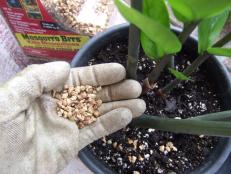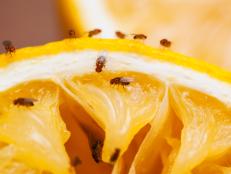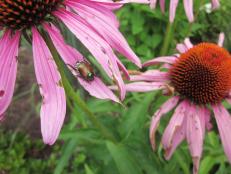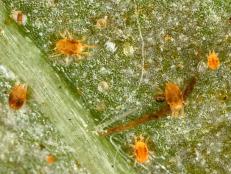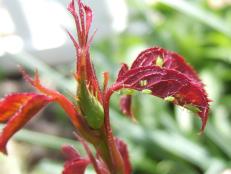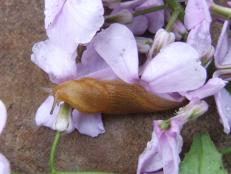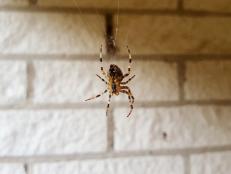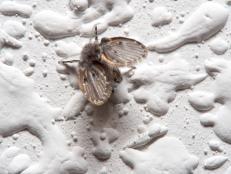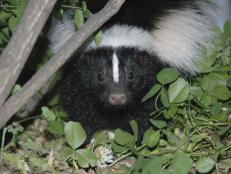How to Get Rid of Chiggers
Find out how to get rid of chiggers and how to prevent and treat chigger bites.
It's the stuff you can't see that's the scariest. Chiggers fit that category. These tiny pests are virtually impossible to see with the naked eye, but their presence creates an unmistakeable rash that's intensely itchy. It makes poison ivy pale in comparison.
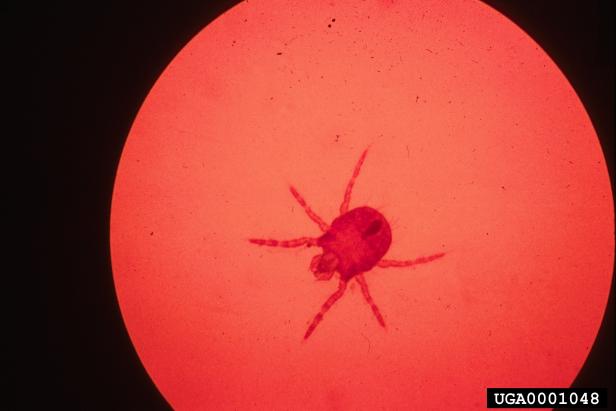
Hansell F. Cross, Georgia State University, Bugwood.org
Chiggers are the immature form of a harvest mite. Feeding on you or another animal enables them to develop into adults, which — good news for you — prefer eating mosquito and pillbug eggs to people. They're most active when temps are in the 70s to low 80s and become inactive with temps over 90 F or below 60 F.
These pesky bugs are most common in the South, Southeast and Midwest, although they also occur in Texas and parts of the Mid-Atlantic. One good thing about U.S. chiggers is that they don't carry or transmit diseases. They just make you itchy and miserable.
Why Chigger Bites Itch
A chigger is so small that you don't feel it bite — there's no tickle of something crawling on you. By the time you realize it's been feeding, it's too late. The damage is done. Contrary to popular belief, chiggers don't burrow into your skin or suck your blood. When they bite, they inject enzymes that dissolve skin. Your body's immune system responds to the bite by forming a hard wall of cells, which creates a straw the chigger uses to sip liquid skin.
Your immune response is basically an allergic reaction to chigger spit, and that's what causes the intense itching and scabby rash. Chiggers like tight spaces, so they tend to bite where your clothes are snug (think waistband, leg band, socks cuff) — places that create a very uncomfortable itch.
By the time you start to scratch, the chigger is long gone, so there's no need to paint the welts with nail polish. Your best bet when bitten is to use chigger ointments, anti-itch sprays or creams and antihistamines. Cool compresses also help lessen discomfort.

The Toro Company at Toro.com
How to Get Rid of Chiggers
To get rid of chiggers, it helps to know where they live. Ideal chigger habitat is shady with plenty of moisture and thick vegetation. Tall grass along the edges of a wood is prime chigger habitat, as is a creek bed or a semi-shady planting of English ivy. Knowing where chiggers live is key to getting rid of them.
- Mow the lawn. Chiggers love tall grass. The easiest way to rid your yard of chiggers is to keep the grass mowed.
- Pull weeds. Thick vegetation is chigger heaven. Remove any weedy, overgrown areas.
- Treat the yard. Look for lawn care insecticides you apply with a lawn spreader that are effective against chiggers. It's probably more effective to use these on smaller lawns. For a natural approach, use sulfur pellets (also applied with a spreader), unless you have pets — then sulfur isn't an option.
- Wash clothes. During chigger season, anytime you've been outdoors in areas where chiggers might occur, get your clothes into the washer as soon as you come indoors to avoid spreading them through your home.
- Welcome frost. Chiggers can't survive a frost or freeze, so after that occurs, you're home free.

Photo by SC Johnson at SCJohnson.com
How to Prevent Chigger Bites
The first step in preventing chigger bites is knowing what puts you in harm's way. Anytime you head into tall grass or thick vegetation, you're walking into chigger territory. Even things like golfing can put you at risk if you slice your ball into a wooded area or thick vegetation. It’s better to leave your ball than to risk chigger bites.

Stuart Thurlkill/The Resort at Paws Up
Fishing is another activity that brings you into chigger-laden areas, especially along the water's edge where tall grass or other vegetation is. One way to escape chiggers is to curtail outdoor activities, but who wants to do that? Instead, keep chiggers from biting with a few of these strategies.
- Repel them. Use a DEET-containing bug spray to coat clothing (including socks) and bare skin. For a natural option, look for sulfur-based anti-chigger products you can use to coat clothing and skin. Or spray clothes and skin with white distilled vinegar before heading outdoors. Essential oils like lavender, peppermint, tea tree, citronella or thyme (diluted according to label instructions) also offer an effective repellent tactic. For a simple DIY chigger repellent, mix 2 teaspoons of witch hazel and 5 drops of essential oil in 4 tablespoons of water. Apply directly to skin. When using chigger repellent, pay special attention to feet, ankles and calves. On a hot day, a chigger can move from your shoe to your waistband in 15 minutes.
- Cover skin. Chiggers can't bite if they can't get to skin. Cover arms with long sleeves; wear pantyhose to cover legs and ankles. Pull on tall boots and tall socks (better yet, two or three pairs of socks). Tuck pants into socks (the outermost pair if you're wearing several).
- Choose hard surfaces. When you're outdoors, avoid walking in vegetation. Choose a plant-free bike or hiking path, and you won't encounter chiggers. When you're hiking in a natural setting, stay in the center of the path and try not to let vegetation brush your legs.
- Skip shade. Chiggers dislike bright sun. If you stay out of shady areas, you reduce your chances of getting chiggers.
- Brush them away. If it's too hot to cover every inch of your body with clothing, stop every 30 minutes to brush your skin and knock chiggers off your body. Rub vigorously, including areas where chiggers love to hide: along waistbands, sock tops and underarms.
- Take a shower. Once you're indoors, take a hot shower as soon as possible. Use lots of suds and scrub your skin vigorously with a washcloth. Sometimes chiggers wander around on you for hours before they stop to feed. Scrubbing your skin can dislodge any chiggers that might already be on you.
- Amp up your odor. Chiggers dislike strong odors, so try creating a body aroma that's unpleasant to them. Some folks swear by taking sulfur supplements (check with your doctor first) or by eating a clove of garlic daily.

Courtney Celley for U.S. Fish & Wildlife Service at FWS.gov








